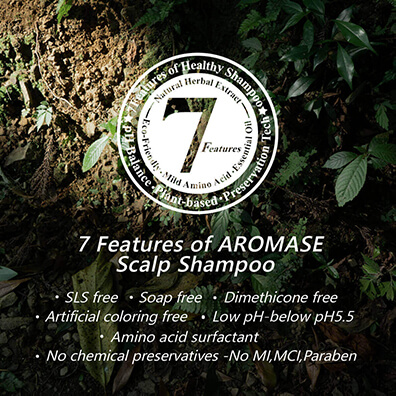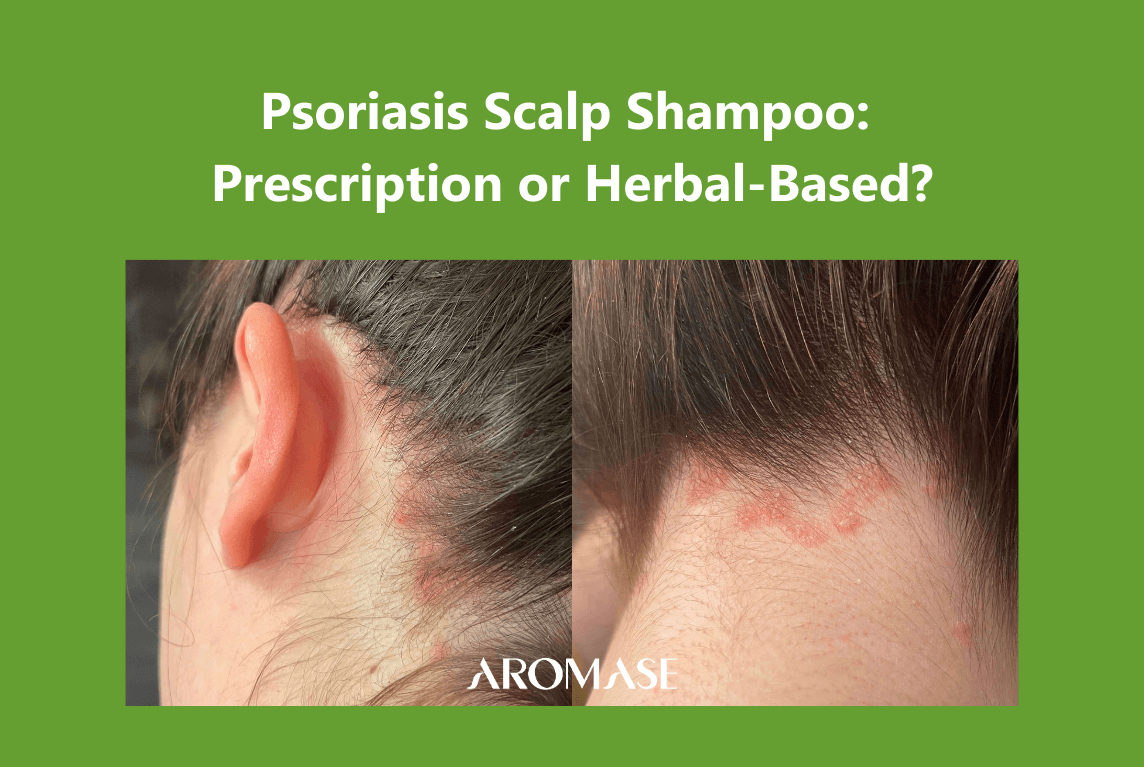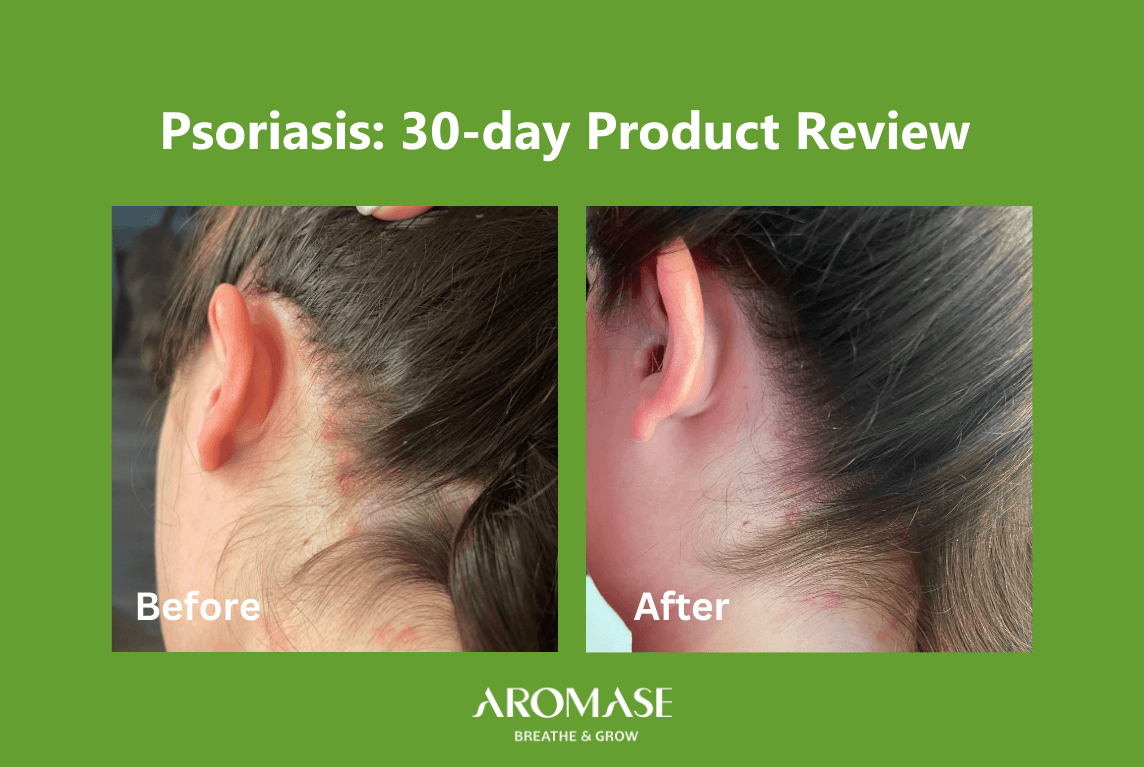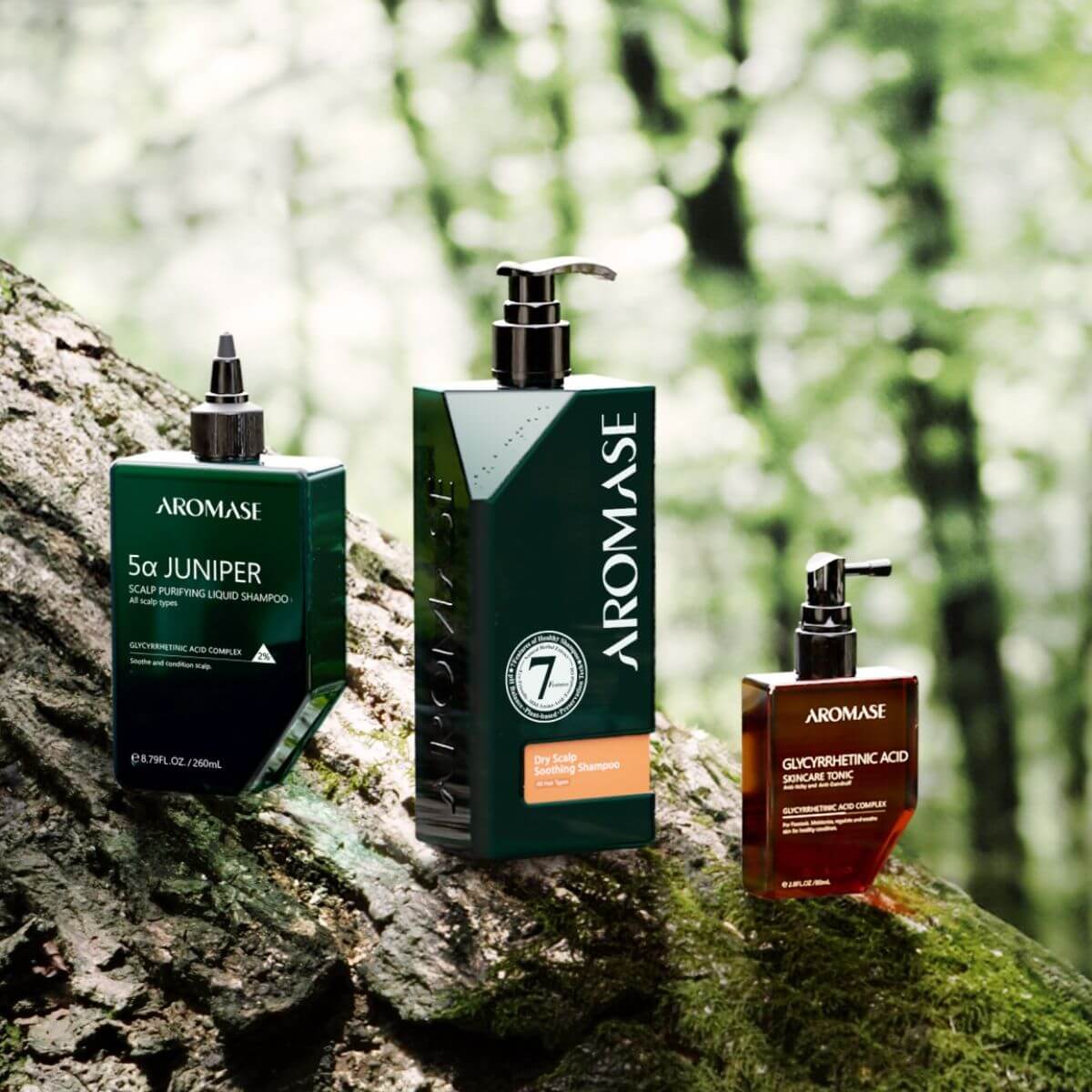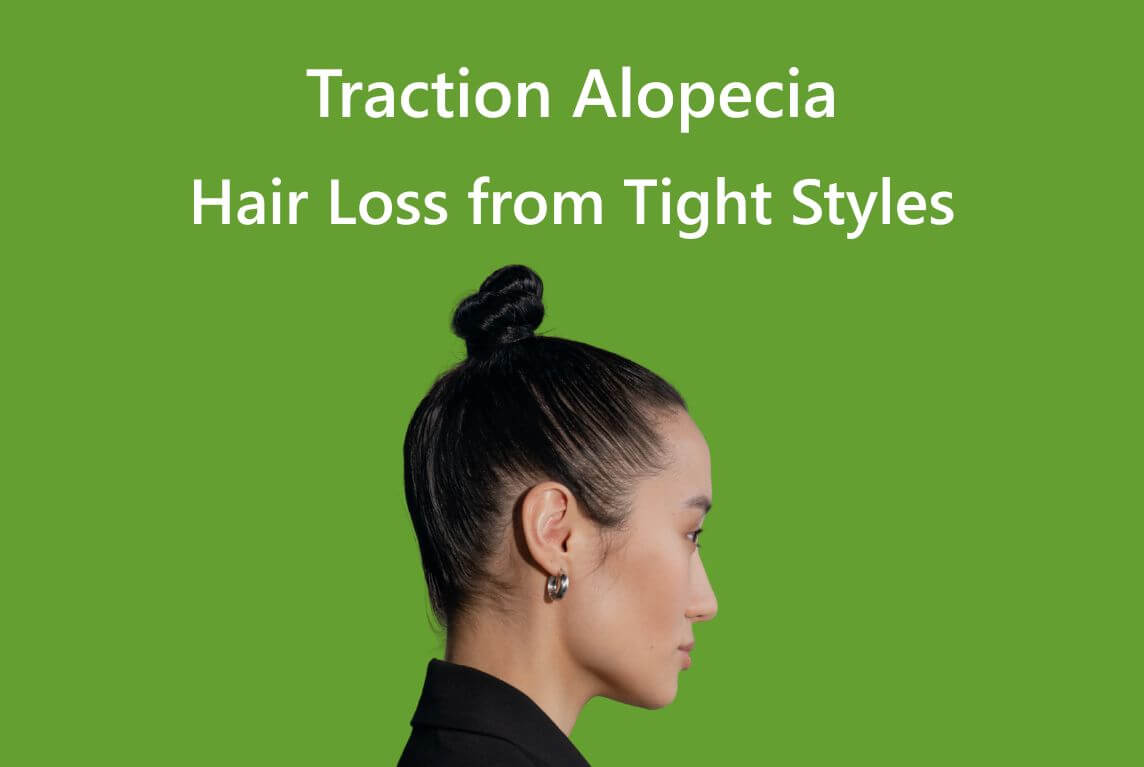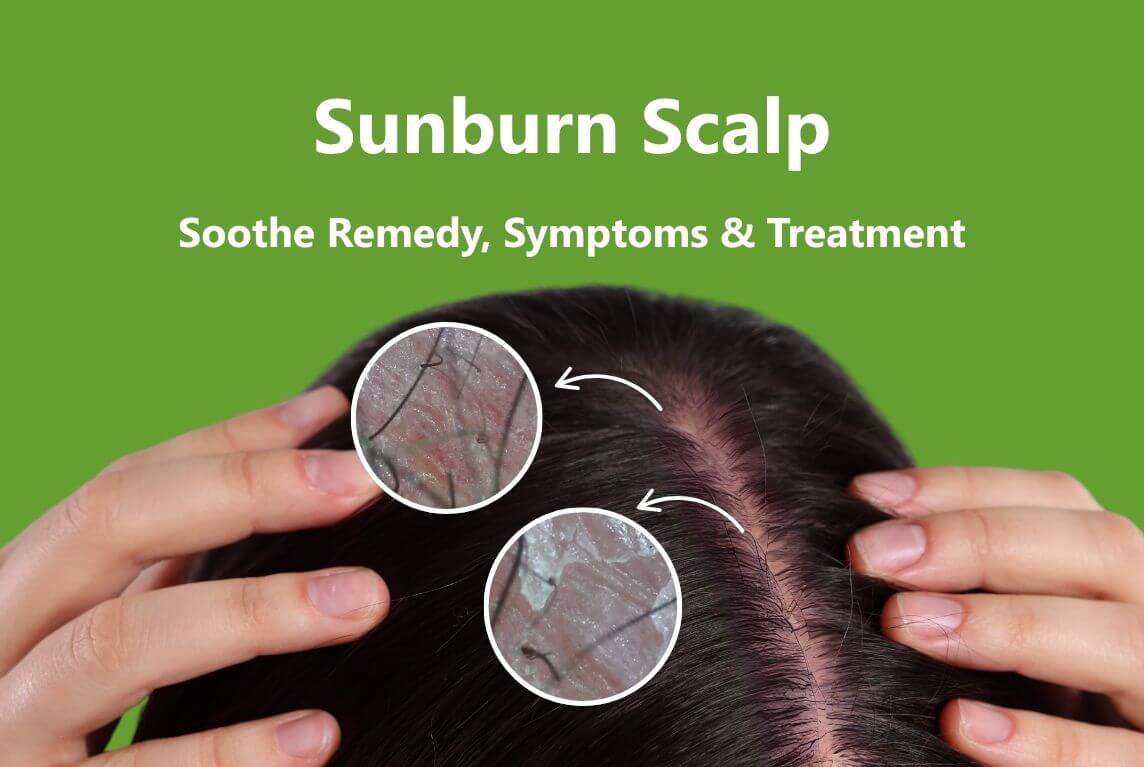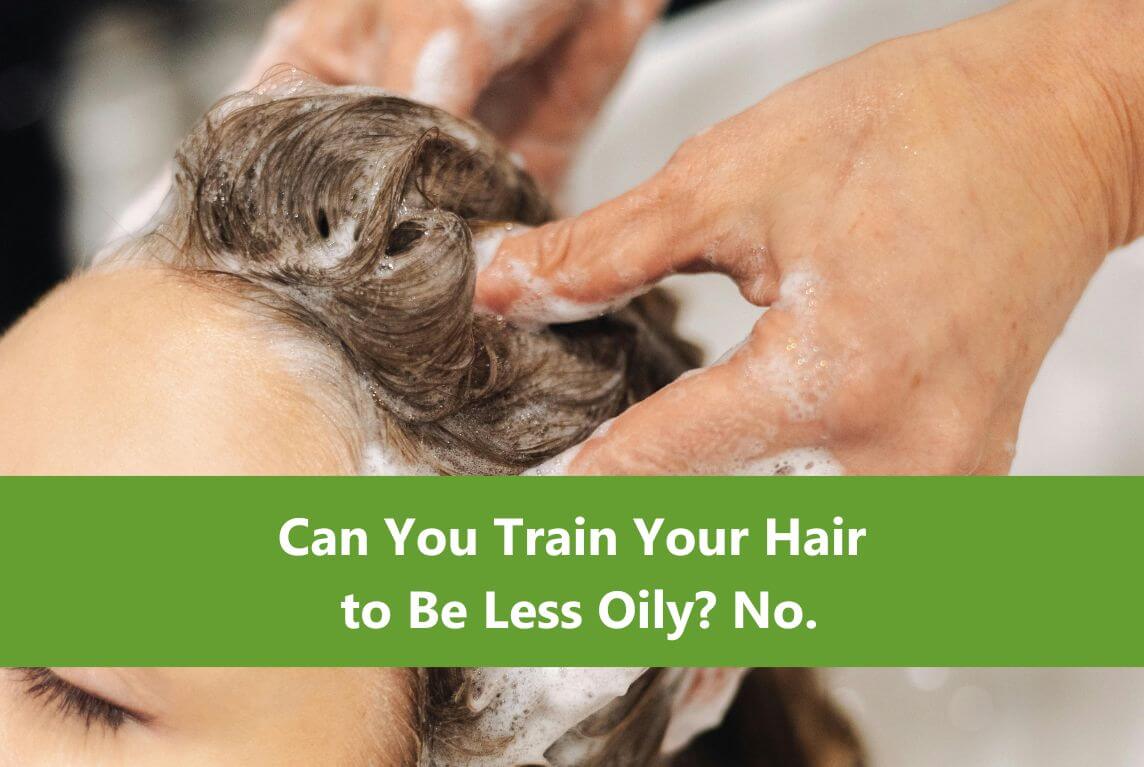Managing scalp psoriasis is a daily challenge due to constant itching, flaking, and discomfort. Finding an effective treatment can be tough. When managing this condition, one may wonder: should you choose a scalp psoriasis prescription shampoo or an herbal alternative?
Understanding Scalp Psoriasis
Scalp psoriasis, marked by red, itchy patches and silvery scales, can spread to the forehead, neck, and behind the ears. Management focuses on reducing inflammation and preventing flare-ups.
(Learn more: Difference of Oily Dandruff and Psoriasis: Pictures, Symptoms, Must Do Daily Care )
Prescription Shampoos: The Traditional Approach
Scalp psoriasis Prescription shampoos are often the first line of defense recommended by dermatologists. These shampoos contain active ingredients like coal tar, salicylic acid, or corticosteroids, which are designed to:
- Reduce Inflammation: Corticosteroids help decrease swelling and redness.
- Remove Scale: Salicylic acid softens and loosens scales, making them easier to wash away.
- Slow Skin Cell Growth: Coal tar can help reduce the rapid growth of skin cells, which is a hallmark of psoriasis.
Pros of Prescription Shampoos
- Effectiveness: Prescription shampoos are formulated to provide quick relief from severe symptoms.
- Dermatologist-Recommended: These products are usually prescribed after a healthcare professional’s thorough evaluation.
Cons of Prescription Shampoos
- Side Effects: Long-term use can lead to side effects such as thinning skin or increased sensitivity.
- Chemical Ingredients: Strong chemicals might not be suitable for all skin types, especially sensitive skin.
Herbal-Based Shampoos: A Sustainable Alternative
Herbal-based shampoos offer a gentler, more natural approach to managing scalp psoriasis. These shampoos use plant-based ingredients known for their soothing and healing properties, such as tea tree oil, aloe vera, glycyrrhetinic acid complex, and chamomile.
Pros of Herbal-Based Shampoos
- Gentle on the Scalp: Herbal formulas tend to be less harsh compared to chemical-based treatments.
- Fewer Side Effects: Plant-based ingredients reduce the risk of adverse reactions and are often suitable for all skin types.
- Long-Term Use: Ideal for those looking for a sustainable, long-term solution without the worry of harmful side effects.
Cons of Herbal-Based Shampoos
- Slower Results: It might take longer to see significant improvement compared to prescription shampoos.
- Varied Effectiveness: The results can vary greatly from person to person, depending on the specific ingredients and individual response.
Combining Prescription and Herbal Shampoos for Optimal Care
For those dealing with severe scalp psoriasis, a combination approach using both prescription and herbal-based shampoos can be particularly effective. Here’s how to use both for the best results:
Short-Term and Immediate Relief: Prescription Shampoos
- Initial Treatment: When symptoms flare up, start with a prescription shampoo to quickly reduce inflammation, remove scales, and alleviate severe itching.
- Usage: Follow your dermatologist’s instructions, typically using the prescription shampoo a few times a week for a limited period.
Long-Term and Gentle Care: Herbal Shampoos
- Maintenance Phase: Once the acute symptoms are under control, transition to using an herbal-based formula like 3–Step Psoriasis Scalp Care to maintain scalp health.
- Regular Use: Use the 3–Step Psoriasis Scalp Care regularly (daily or every other day) to keep the scalp clean, balanced, and hydrated, preventing future flare-ups.
- Integrated Care: During periods of mild symptoms, you can alternate between the prescription and herbal shampoos as needed, ensuring that your scalp benefits from both immediate relief and long-term maintenance.
- Learn more: 30 Days Herbal Remedies for Scalp Psoriasis: Before and After
3 Steps Care for Scalp Psoriasis
- Scalp Purifying Liquid Shampoo
Frequency: Once every 3 days
Formulated with glycyrrhetinic acid, this liquid shampoo deeply cleanses the scalp, removing buildup, flakes, and soothing irritation. - Dry Scalp Soothing Shampoo
Frequency: Once every day or other Day
The shampoo helps to restore the natural balance of the scalp, reducing inflammation and preventing flare-ups. - Glycyrrhetinic Acid Skincare Tonic
Frequency: Use 3 times daily or when your scalp gets itchy.
Provides deep hydration to the scalp, alleviating dryness and promoting a healthy scalp environment. - Psoriasis 3 Steps Solution
Choosing between prescription and herbal shampoos for scalp psoriasis depends on personal needs and preferences. Prescription shampoos offer quick relief, while herbal options are gentler for long-term use. Combining both can effectively manage scalp psoriasis sustainably.

